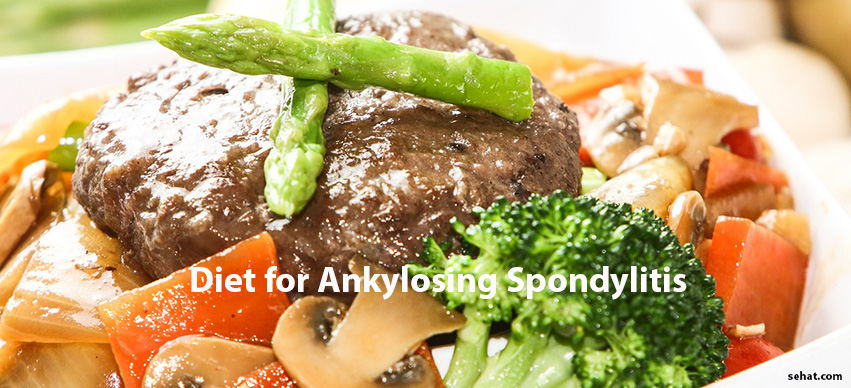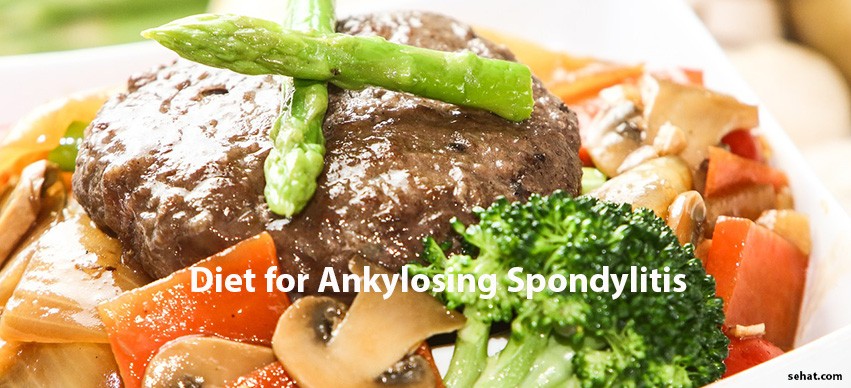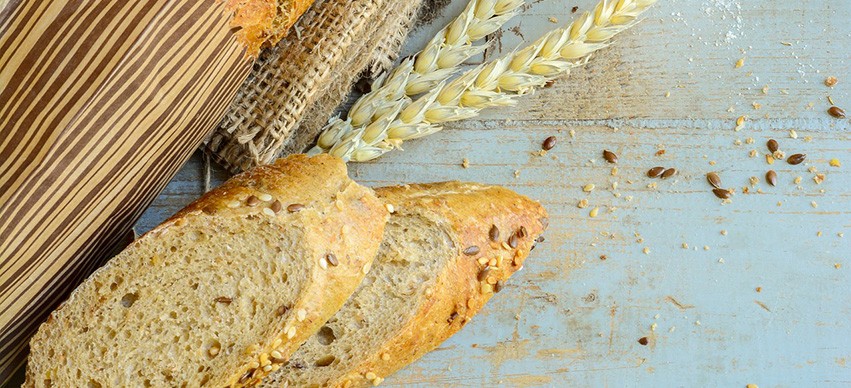What is Tempeh? Nutrition, Health Benefits, How to eat
4 Min Read


Ankylosing spondylitis is a disease where the joints and ligaments of our spine become inflamed and may eventually fuse. For this chronic medical condition, it is necessary to eat a balanced diet and to keep a healthy weight. The keys to a healthy diet are:
We will look at both these points in detail.
It has been shown that rheumatologic diseases are highly susceptible to positive influences of supplements and a healthy lifestyle. Though there is no conclusive evidence to prove that a specific kind of diet is effective, the following do’s and don’ts can help our bodies become healthier.
Fruits and vegetables contain hundreds of colourful phytochemicals that act as antioxidants. Antioxidants may help in arthritis symptoms, as they protect the cells from inflammatory damage caused by harmful molecules called free radicals.
At least four portions of vegetables (including at least I leafy green vegetable) and 2 portions of fruit are recommended every day. Specific coloured veggies/fruits include:
Red: Raspberries, cranberries, strawberries, cherries, pomegranates, apples, grapes, pink grapefruit, watermelon, guava, tomatoes, peppers, radishes, and potatoes.
Green: Asparagus, avocado, spinach, lettuce, watercress, cucumber, broccoli, Brussels sprouts, leafy cabbage, spring greens, beans, peas, sugar snap peas, peppers, spring onions, leeks, apples, grapes and kiwi fruit
Purple/Blue: Blackberries, blueberries, grapes, blackcurrants, plums, prunes, raisins, red cabbage, and red onions
Orange Yellow: Apricots, melons, mangoes, peaches, papaya, oranges, grapefruit, pineapple, nectarines, carrots, sweet potatoes, yellow and orange peppers, pumpkin and sweet corn
Ankylosing spondylitis inflammation can affect the heart and joints. Whole grains such as brown rice, quinoa, and buckwheat are recommended in diet as they contain more fibre, and usually more vitamins and minerals than the white processed varieties.
Drinking 8 to 10 glasses of water every day is important for everyone, including patients with ankylosing spondylitis.

It is important to make sure that enough calcium and vitamin D are covered in our diet. About 700 mg of calcium is required in a day. This is equivalent to 200 ml of semi skimmed milk, a 150-gm pot of low-fat yogurt, and a small match-box sized piece of cheese. Vitamin D and calcium are important for our bones, especially since patients with ankylosing spondylitis are at an increased risk of osteoporosis (thinning of the bones that .can lead to increased risk of fractures) If the intake through diet is found to be insufficient, supplements are recommended.
Addition of proteins in the form of fish, beans, pulses, nuts, eggs and meat (not too much) is recommended. Omega-3 fatty acids which are found in coldwater fish or fish water supplements have been shown to reduce inflammation.

Saturated fats and foods high in cholesterol may help promote inflammation, in turn, raising our risk of heart disease. Starch restriction has shown to improve symptoms in some patients.
Alcohol can contribute to weaker bones. Consuming more than two alcoholic drinks per day is therefore not recommended. In addition, alcohol mixed with certain medications can cause serious side-effects and damage to the liver and the kidneys.
Some foods can trigger changes in symptoms for better or worse. Keeping a food diary can help to understand these bodily preferences. Some people may feel better by eliminating certain foods. But eliminating or limiting the intake of a whole food group such as carbohydrates can lead to unnecessary weight loss and nutritional deficiencies. It is better to make major changes in a diet plan only after consulting a dietician.
It is important to maintain a healthy weight in ankylosing spondylitis as being overweight increases the burden on our weight bearing joints. While walking, these joints, such as the hips, knees, and ankles, bear 3-5 times a person’s total body weight. If a person is overweight by a pound, 3 to 5 pounds of extra weight is added to each knee while walking. A person who loses around 10 pound of weight, reduces 30-50 pounds worth of extra stress from his joints.
Alternately, inflammation, certain medications, and depression associated with a chronic illness such as ankylosing spondylitis, may reduce appetite or cause an upset stomach, and make it difficult to maintain a healthy weight. Any severe weight loss needs to be reported to the physician.